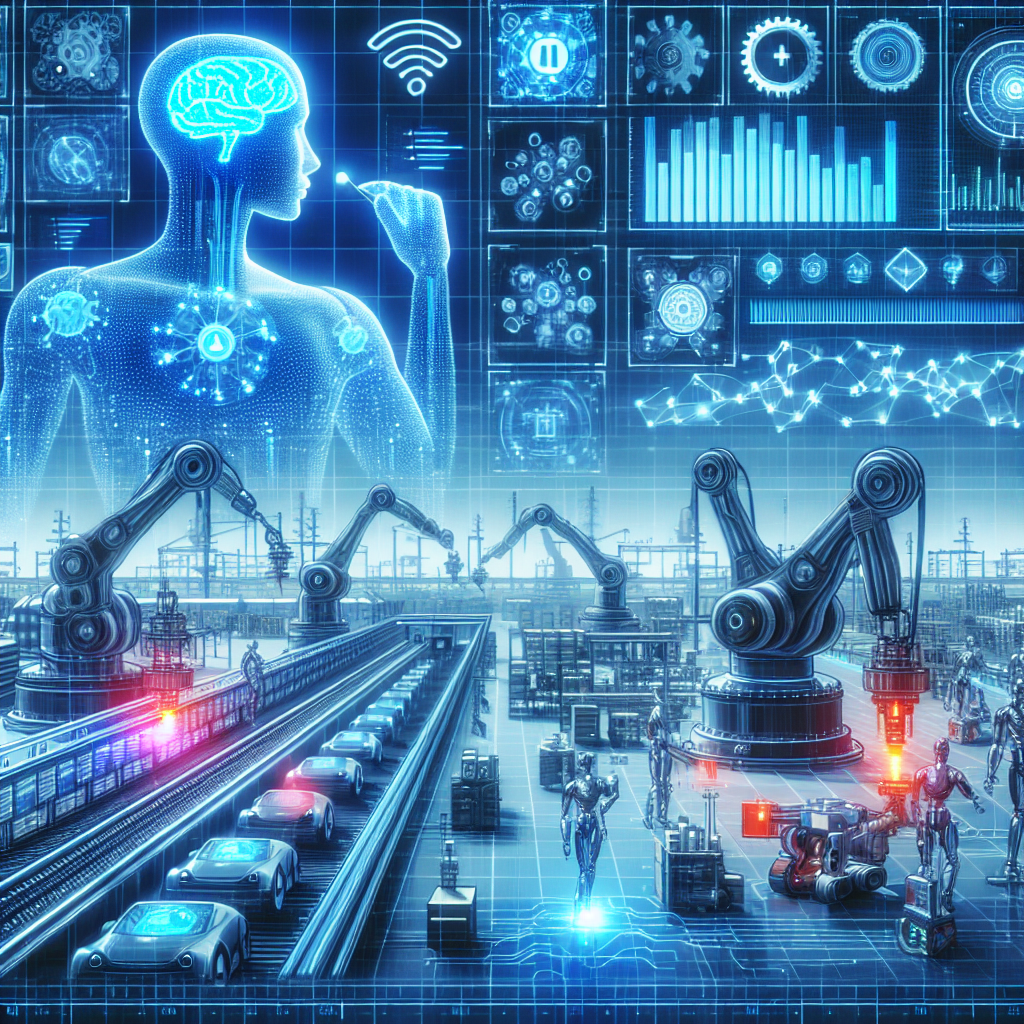As technology continues to advance at a rapid pace, the role of artificial intelligence (AI) in procurement within the manufacturing industry is becoming increasingly important. AI-driven procurement has the potential to transform the way businesses source materials, manage inventory, and streamline supply chain operations. In this article, we will explore the future of AI-driven procurement in manufacturing and discuss the benefits and challenges of implementing this technology.
Benefits of AI-driven Procurement in Manufacturing
1. Cost Savings: One of the primary benefits of AI-driven procurement in manufacturing is cost savings. By using AI-powered algorithms to analyze historical data, businesses can identify cost-saving opportunities, negotiate better deals with suppliers, and optimize inventory levels. This can result in significant cost reductions and improved profitability.
2. Improved Efficiency: AI-driven procurement can help streamline the procurement process by automating routine tasks, such as supplier selection, order processing, and invoice reconciliation. This allows procurement professionals to focus on more strategic activities, such as supplier relationship management and risk mitigation. Additionally, AI can help businesses identify bottlenecks in the supply chain and proactively address them to improve efficiency.
3. Enhanced Decision-Making: AI-powered analytics can provide businesses with valuable insights into their procurement processes, such as supplier performance, market trends, and demand forecasting. This information can help businesses make more informed decisions and optimize their procurement strategies to meet their business objectives.
4. Risk Mitigation: AI-driven procurement can help businesses mitigate risks associated with supplier disruptions, market volatility, and compliance issues. By leveraging AI-powered predictive analytics, businesses can identify potential risks and take proactive measures to minimize their impact on operations.
Challenges of AI-driven Procurement in Manufacturing
While the benefits of AI-driven procurement in manufacturing are significant, there are also challenges that businesses must overcome when implementing this technology. Some of the key challenges include:
1. Data Quality: AI-powered algorithms rely on high-quality data to make accurate predictions and recommendations. Poor data quality, such as incomplete or inaccurate information, can lead to suboptimal procurement decisions. Businesses must invest in data quality management processes to ensure that their AI systems have access to reliable data.
2. Integration Complexity: Integrating AI-driven procurement systems with existing enterprise resource planning (ERP) and supply chain management systems can be complex and time-consuming. Businesses must carefully plan and execute the integration process to minimize disruption to their operations.
3. Change Management: Implementing AI-driven procurement requires a cultural shift within the organization. Procurement professionals must be willing to adopt new technologies and workflows, and businesses must provide training and support to help employees navigate the transition.
4. Security and Privacy Concerns: AI-driven procurement systems may access sensitive business data, such as supplier contracts, pricing information, and inventory levels. Businesses must implement robust security measures to protect this data from cyber threats and ensure compliance with data privacy regulations.
The Future of AI-driven Procurement in Manufacturing
Despite these challenges, the future of AI-driven procurement in manufacturing looks promising. As AI technologies continue to evolve and become more sophisticated, businesses will have access to powerful tools that can revolutionize their procurement processes. Some of the key trends shaping the future of AI-driven procurement in manufacturing include:
1. Predictive Analytics: AI-powered predictive analytics will play a crucial role in helping businesses forecast demand, optimize inventory levels, and identify potential risks in the supply chain. By leveraging historical data and machine learning algorithms, businesses can make more accurate predictions and proactively address supply chain challenges.
2. Cognitive Automation: Cognitive automation combines AI technologies, such as natural language processing and machine learning, to automate complex procurement tasks that require human-like reasoning. This technology can help businesses streamline their procurement processes, reduce errors, and improve decision-making.
3. Supplier Relationship Management: AI-driven procurement can help businesses enhance their relationships with suppliers by providing insights into supplier performance, risk exposure, and collaboration opportunities. By leveraging AI-powered tools, businesses can identify strategic suppliers, negotiate better contracts, and build stronger partnerships.
4. Sustainability and Ethical Sourcing: AI-driven procurement can help businesses improve their sustainability practices and ensure ethical sourcing of materials. By analyzing supplier data and monitoring supply chain activities, businesses can identify opportunities to reduce waste, minimize carbon emissions, and promote ethical labor practices.
5. Personalized Procurement Solutions: AI-powered procurement systems can be customized to meet the specific needs of individual businesses. By leveraging machine learning algorithms, businesses can tailor their procurement strategies to optimize cost savings, efficiency, and risk mitigation.
FAQs about AI-driven Procurement in Manufacturing
Q: What are the key benefits of AI-driven procurement in manufacturing?
A: Some of the key benefits of AI-driven procurement in manufacturing include cost savings, improved efficiency, enhanced decision-making, and risk mitigation.
Q: What are the main challenges of implementing AI-driven procurement in manufacturing?
A: Some of the main challenges of implementing AI-driven procurement in manufacturing include data quality, integration complexity, change management, and security and privacy concerns.
Q: What are some of the future trends in AI-driven procurement in manufacturing?
A: Some of the future trends in AI-driven procurement in manufacturing include predictive analytics, cognitive automation, supplier relationship management, sustainability and ethical sourcing, and personalized procurement solutions.
In conclusion, the future of AI-driven procurement in manufacturing holds great promise for businesses looking to optimize their procurement processes, reduce costs, and improve efficiency. While there are challenges to overcome, the benefits of implementing AI-powered procurement systems far outweigh the risks. By embracing AI technologies and leveraging their capabilities, businesses can gain a competitive edge in an increasingly digital and data-driven world.

